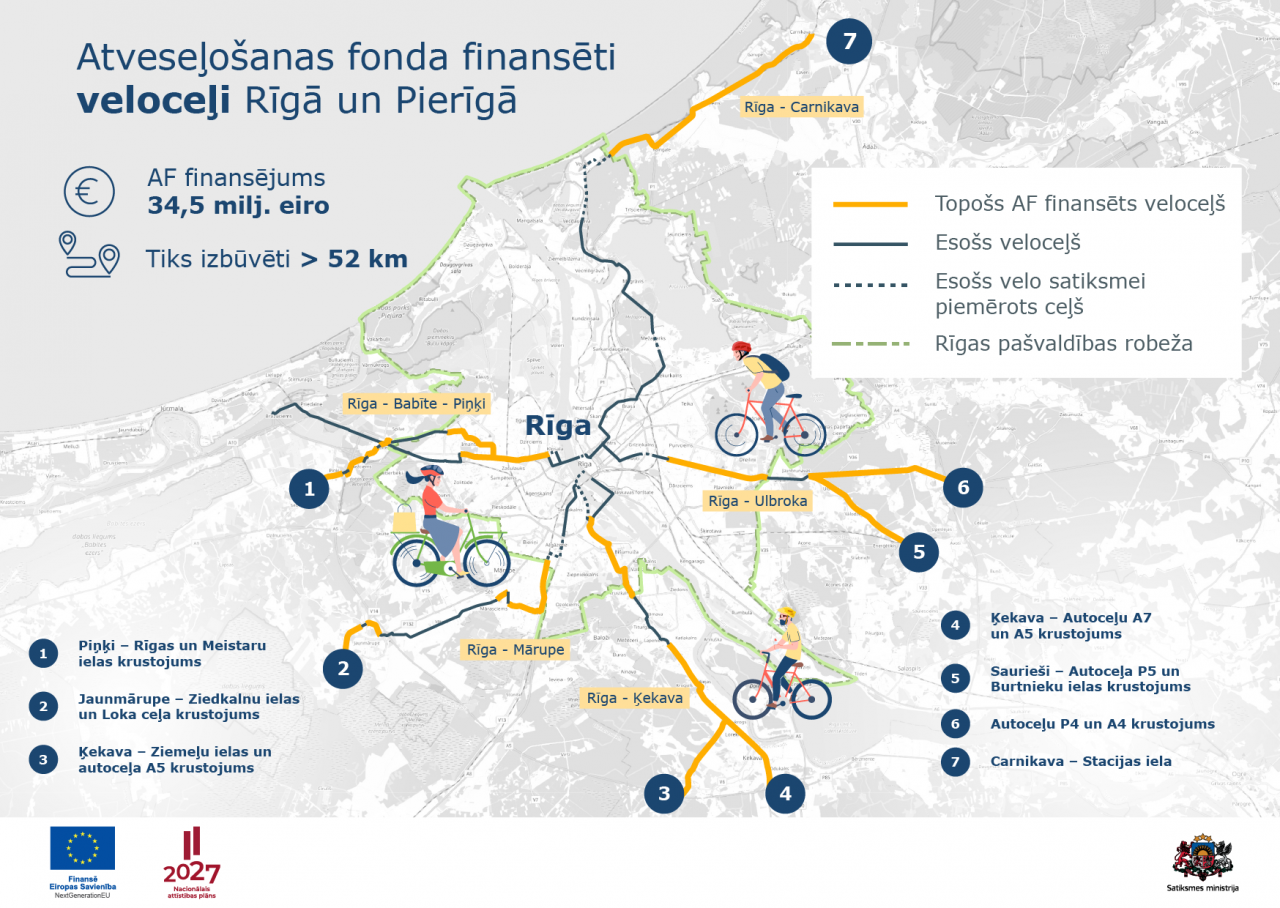For three days – on March 8, 10, and 12 – repeated themed discussions organised by the Ministry of Finance (MoF) will take place remotely to discuss with social and cooperation partners the investments planned in the framework of the European Union (EU) funds and the Recovery and Resilience Facility (RRF) in the field of climate and transportation, digitalisation, economic development, health, reducing inequality and the rule of law from 2021 until 2027.
“Over the next seven years, Latvia will receive from the European Union more than 10 billion euro in the form of grants or support, which we are not going to be required to repay. To ensure that these investments are successful and meet the needs of Latvia while complying with the instructions of the EC as closely as possible, increase productivity, continuing the transformation of the Latvian economy into a knowledge-based economy, it is important that we continue discussions with social and cooperation partners,” emphasises Armands Eberhards, Deputy State Secretary for EU funds at the Ministry of Finance (MoF).
Even though intensive implementation of the projects of the existing EU fund programming period will continue this and next year, for Latvia to receive all the allocated EU funding in the amount of 4.4 billion euro by 2023, the year 2021 also marks the beginning of the next EU multiannual budget period. The EU investments open up broad development and growth opportunities for our country, enabling to better implement the ambitions laid down in the National Development Plan for 2021 - 2027. The majority of the EU funding available to Latvia or 4.24 billion euro will consist of the allocation from the Cohesion Policy funds, the main purpose whereof is to balance economic disparities among the EU member states. Whereas under the RRF, Latvia can receive up to two billion euro of funding for the implementation of structural reforms while introducing the recommendations of the EU Council, as well as for investments in primarily green and digital economy.
The approval of the EU fund action programme and further implementation schedule largely depend on the approval of the binding EC regulations. The MoF has already started working on the required national horizontal legislation projects; however their coordination with sectoral ministries, including public discussion, will only be possible after the corresponding EU regulations are adopted.
Whereas the RRF, as was already mentioned, is a new budget programme under the centralised management of the EC, established in addition to the EU multiannual budget for the programming period of 2021 - 2027. The purpose of the facility is to support reforms, the need whereof has been specified in the European Semester Country Specific Recommendations, as well as investments, specifically those related to the transition to a green and digital economy, as well as to reduce the social and economic impact caused by the crisis. At the beginning of February, the draft Latvian ANM plan was submitted to the EC, as well as a public consultation on the draft plan was launched. Following the receipt of the opinion from the EC and the results of the public discussion, the draft plan will be enhanced in cooperation with the social and cooperation partners. The RRF funds might be available for Latvia in the second half of this year.
To ensure transparent and mutually complementary investment logic, this time, themed discussions are organised regarding both planning documents, dividing them thematically by field of investment. The draft RRF plan is available for review to anyone interested on the MoF website and the EU fund website. The action programme project for Latvia for 2021-2027 is available on the EU fund website. Sign up for the themed discussions on the EU fund website.
